It’s not just about the sunrise—they’re yelling for way more reasons than you think.
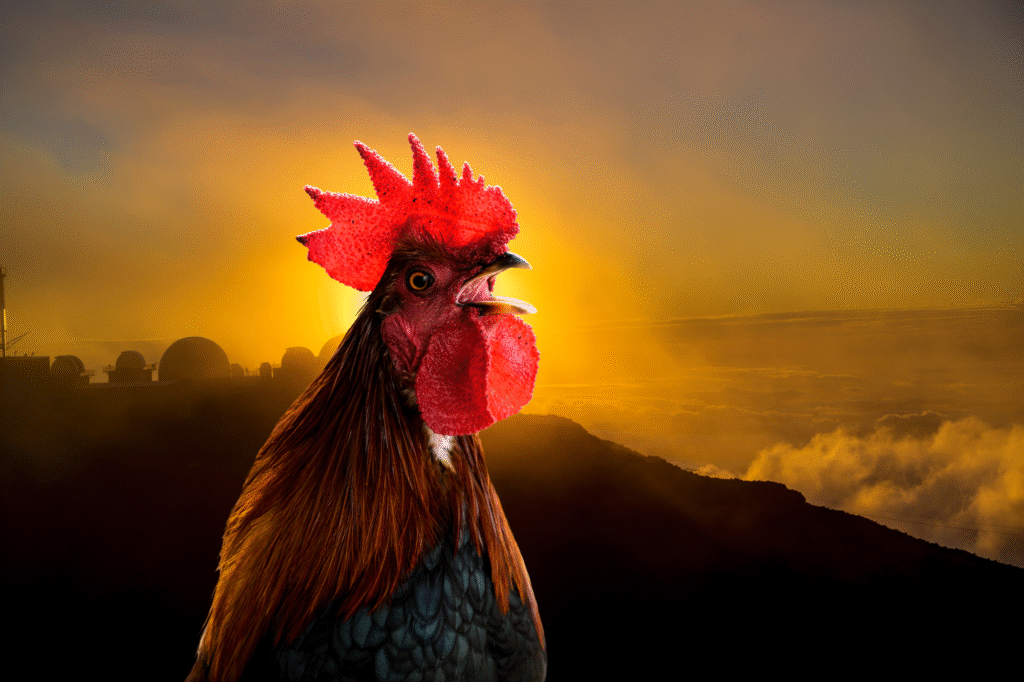
Roosters don’t care if you were up all night or if the sun’s barely peeking over the hills. They crow when they want, how they want, and they don’t wait for permission. People think it’s just a morning thing, but science says otherwise. Turns out these guys have a lot on their chest, and most of it has nothing to do with the sun. It’s more territorial trash talk than wake-up call.
1. It’s not about the light—it’s about who’s boss.
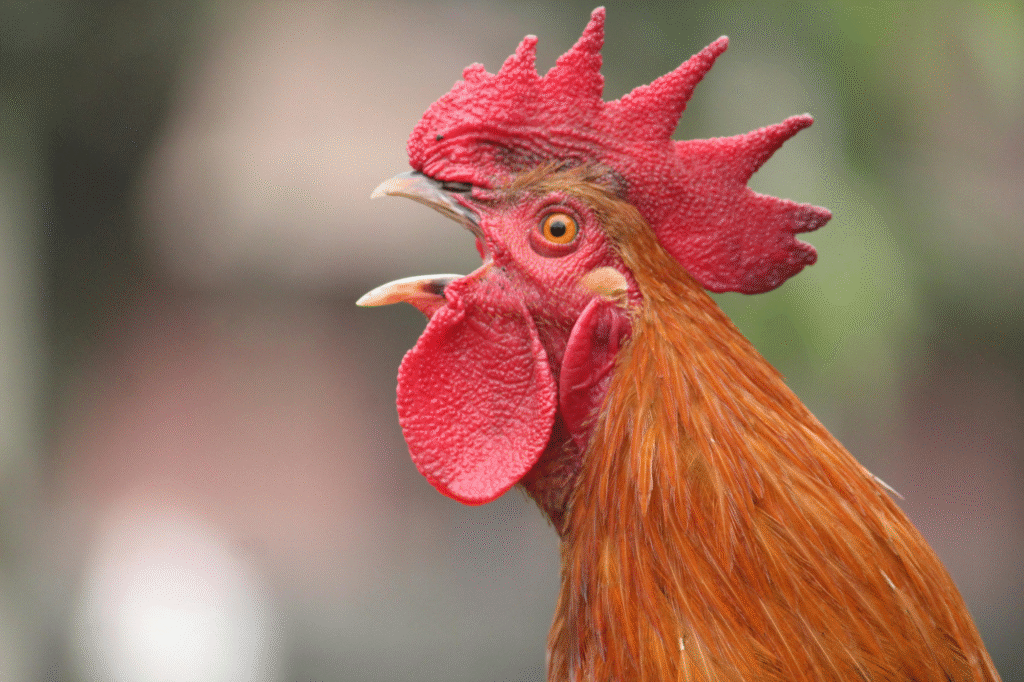
Roosters aren’t just singing to the sunrise. They’re making sure everyone knows they’re in charge. As reported by the journal Current Biology, roosters crow because of internal circadian rhythms, not sunlight. Even in constant darkness, they still crow at the same times every day. So it’s not a response to dawn—it’s a built-in schedule to announce territory, dominance, and general rooster vibes. They’re not greeting the day. They’re declaring ownership of it before anyone else can.
2. Crowing order is determined by the pecking order.
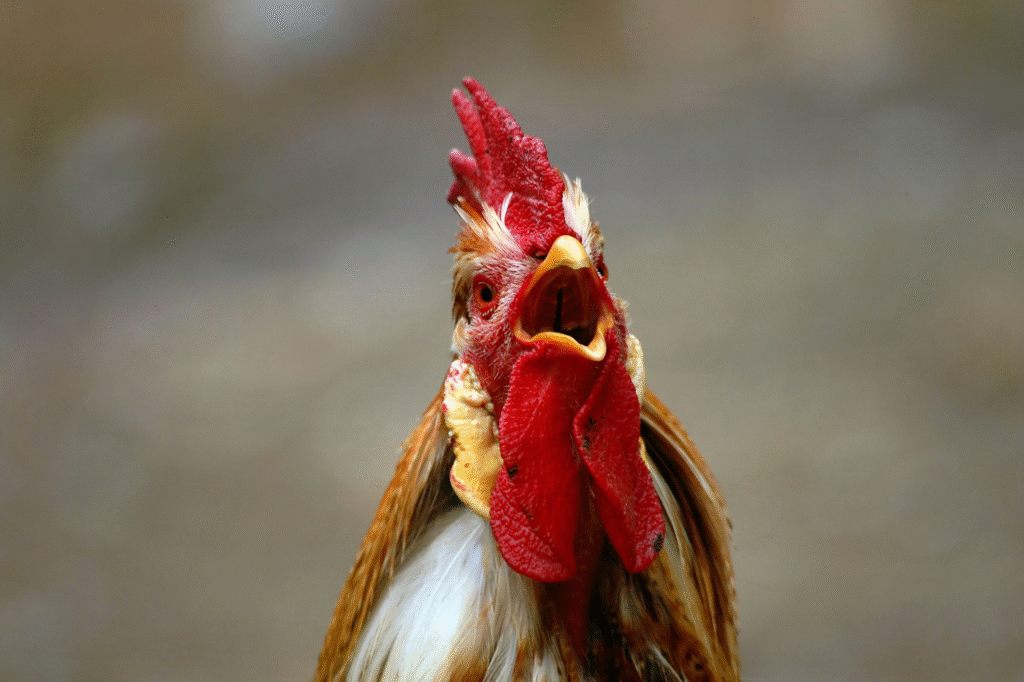
There’s a whole hierarchy to the rooster chorus. According to a study from Nagoya University, the dominant rooster in a group gets to crow first, and everyone else waits their turn. Subordinates only crow after the top bird has finished, like waiting to speak in a courtroom ruled by feathers and attitude. If the head rooster is removed, the second in command will step up and take over crowing duties immediately. So it’s not random. It’s rank-based rooster protocol.
3. It doubles as a warning for nearby rivals.
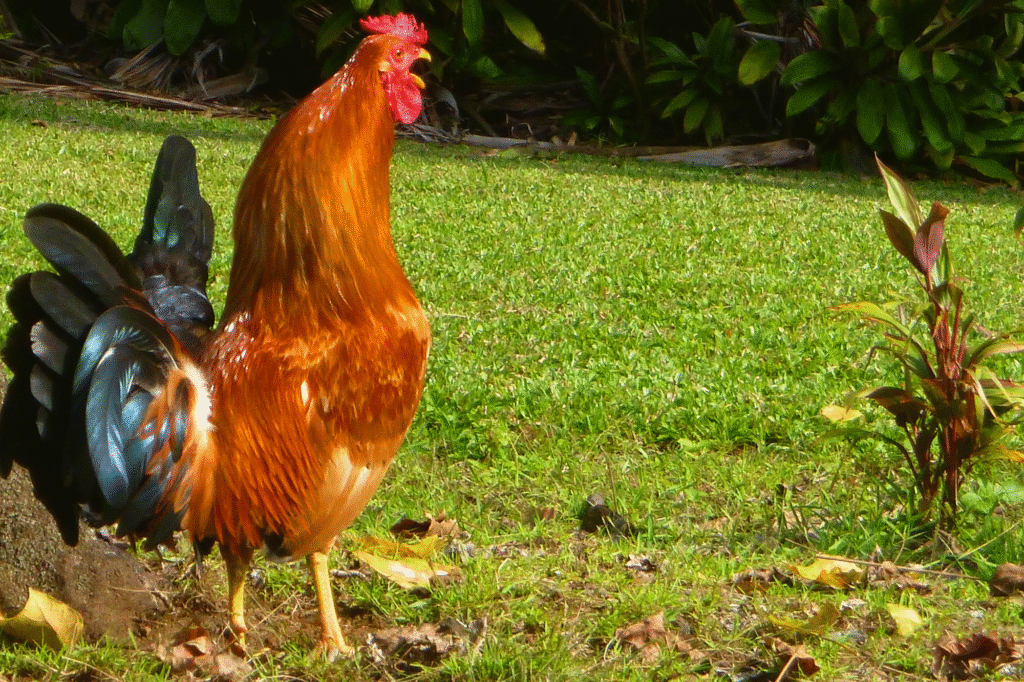
Roosters aren’t just making noise for their own flock. As discovered by researchers at Tohoku University, they use crowing to send messages to potential intruders in surrounding areas. The louder and more frequent the crow, the stronger the message: stay out. It’s not a bluff either. Roosters will back up that sound with real aggression if another male enters their territory. Think of crowing like verbal fencing—they’re trying to settle the dispute before it gets physical.
4. They’ll crow all day if they feel disrespected.
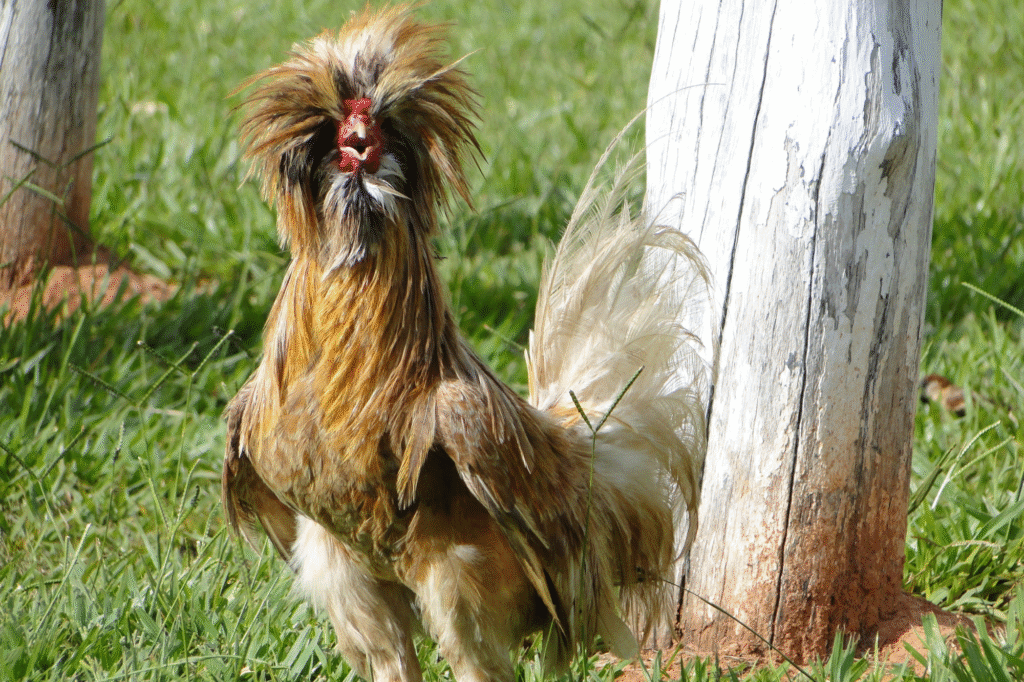
A rooster that’s interrupted, annoyed, or feeling overlooked doesn’t wait until tomorrow morning. He just resets the clock and starts over. Crowing throughout the day isn’t unusual when they’re reacting to environmental stress, a new animal in the coop, or any sort of change to their usual domain. They’re highly reactive to noise and motion, and the crow is often their first line of defense against uncertainty. It’s dramatic, but honestly, so are they.
5. Some breeds are genetically louder and more dramatic than others.
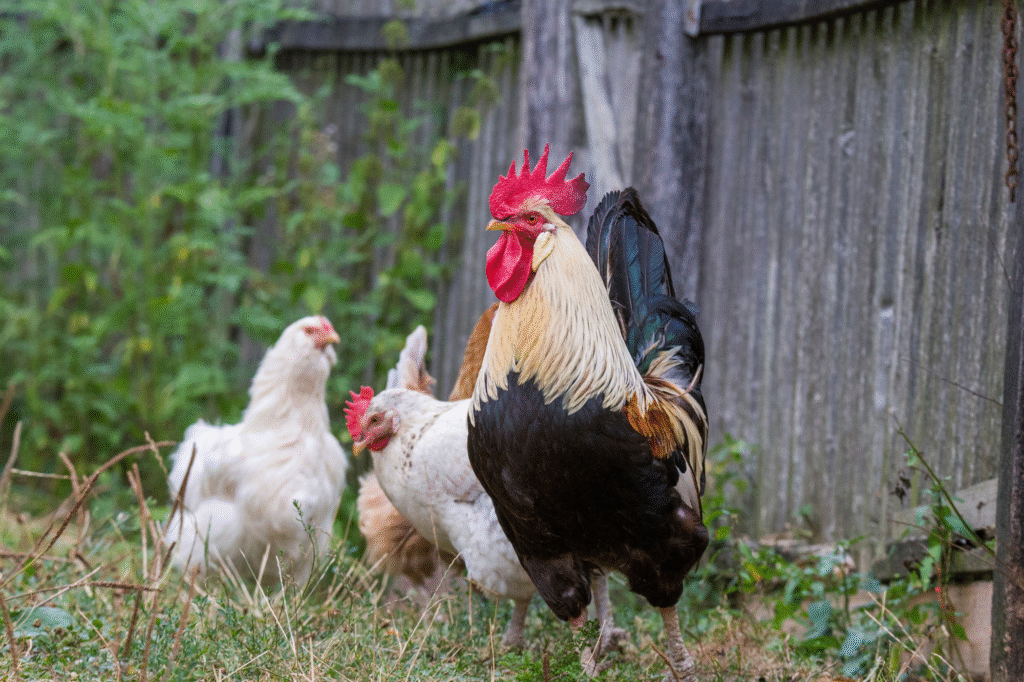
Not all roosters bring the same energy. Breeds like Leghorns or Minorcas are notorious for their relentless crowing, while others like Silkies tend to keep it lower key. It’s not just a personality thing—it’s a breed trait. Some were developed for early alarm behaviors on farms, while others weren’t prioritized for that role. If you’re trying to avoid the 5 a.m. rooster symphony, knowing the breed matters more than where you live or how early you feed them.
6. It actually takes physical training to perfect that crow.
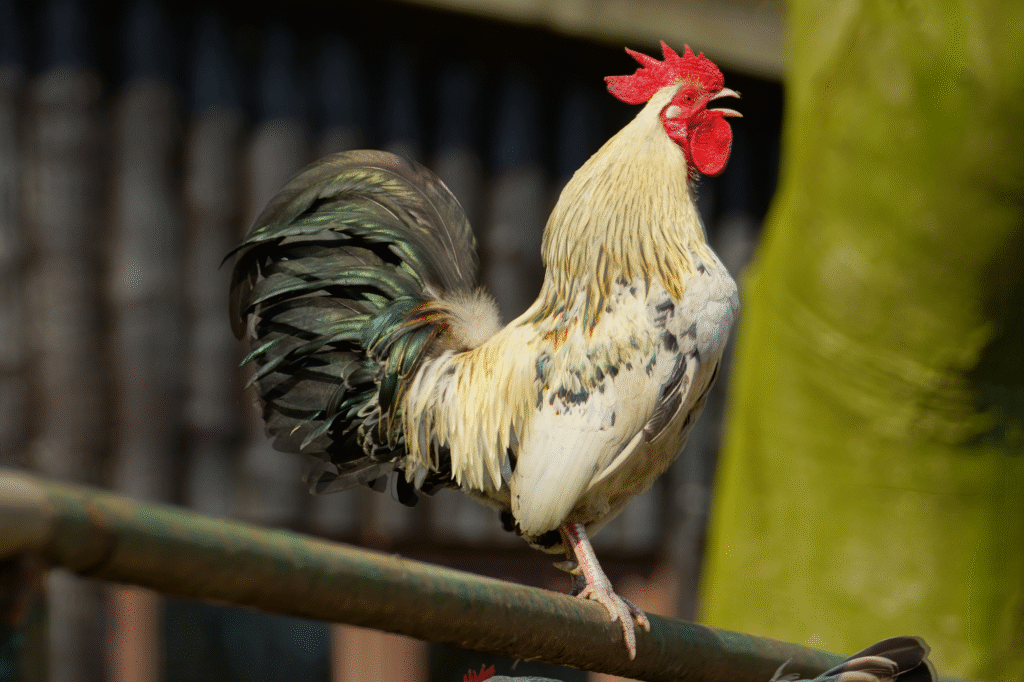
Young roosters don’t wake up one day and start belting flawless notes. They practice. Juvenile males will start with shaky, awkward crows that sound more like kazoo solos than declarations of dominance. Over time, their voices deepen, rhythm strengthens, and pitch control sharpens. It’s an acquired skill they develop by mimicking older roosters and testing their vocal cords. So when you hear a weird half-crow, that’s not malfunction. That’s puberty, feathered and frustrated.
7. Some roosters crow more when they’re bored.
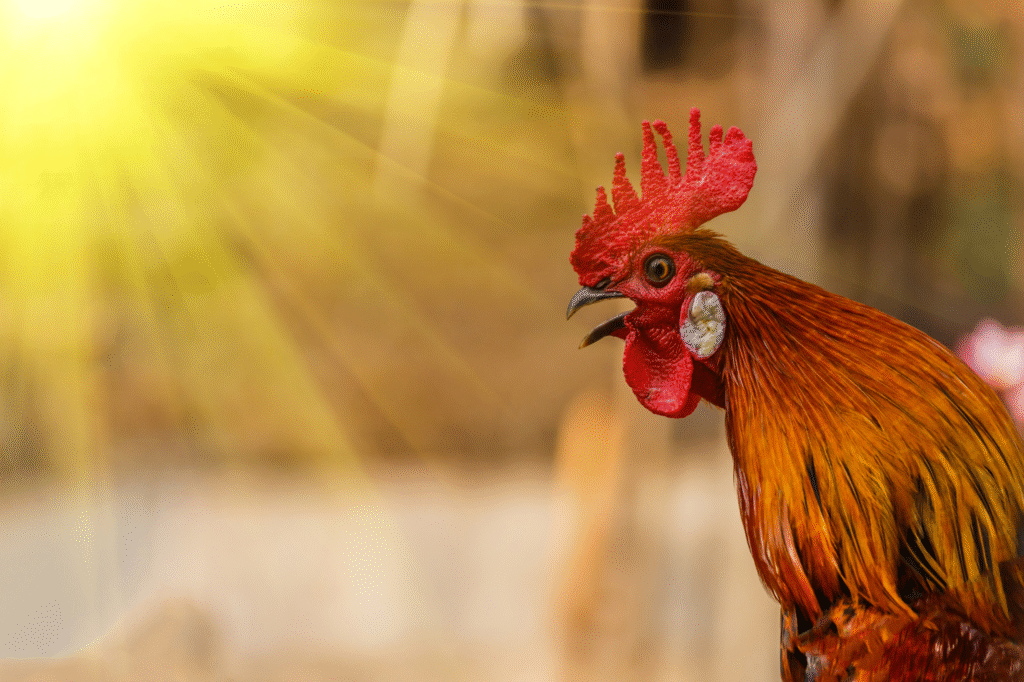
A rooster without enough stimulation will find ways to entertain himself. And unfortunately for everyone within earshot, his go-to hobby is yelling. If there’s no flock movement, no visitors, and nothing threatening on the horizon, he’ll sometimes crow just to mark his presence. It’s kind of like shouting into the void to make sure the void still hears you. This kind of crowing isn’t about territory or dominance. It’s just one very loud bird trying to kill time.
8. They’ve got a special vocal sac that lets them go louder than expected.
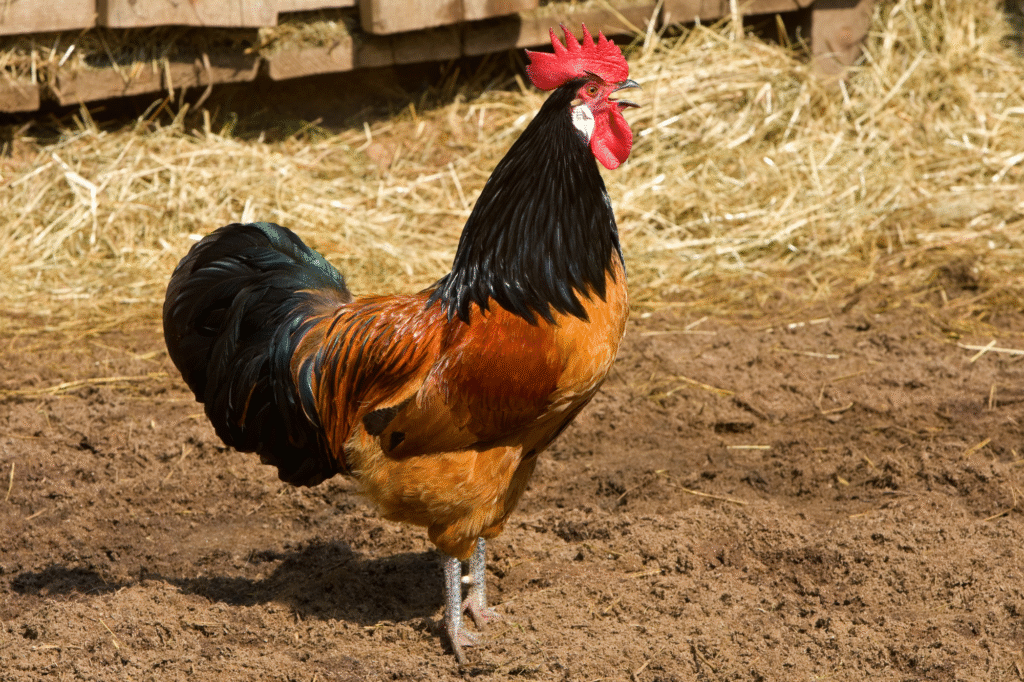
Roosters are equipped with a highly developed syrinx—the bird version of a voice box—which allows them to control pitch and volume in ways other birds can’t. Combined with their air sac system, they can push sound through their bodies at a volume that seems wildly disproportionate to their size. The result is a sound that carries across fields and penetrates closed windows. They were built to be heard, and their biology makes sure they don’t get ignored.
9. They use crowing to manage flock movement and energy.
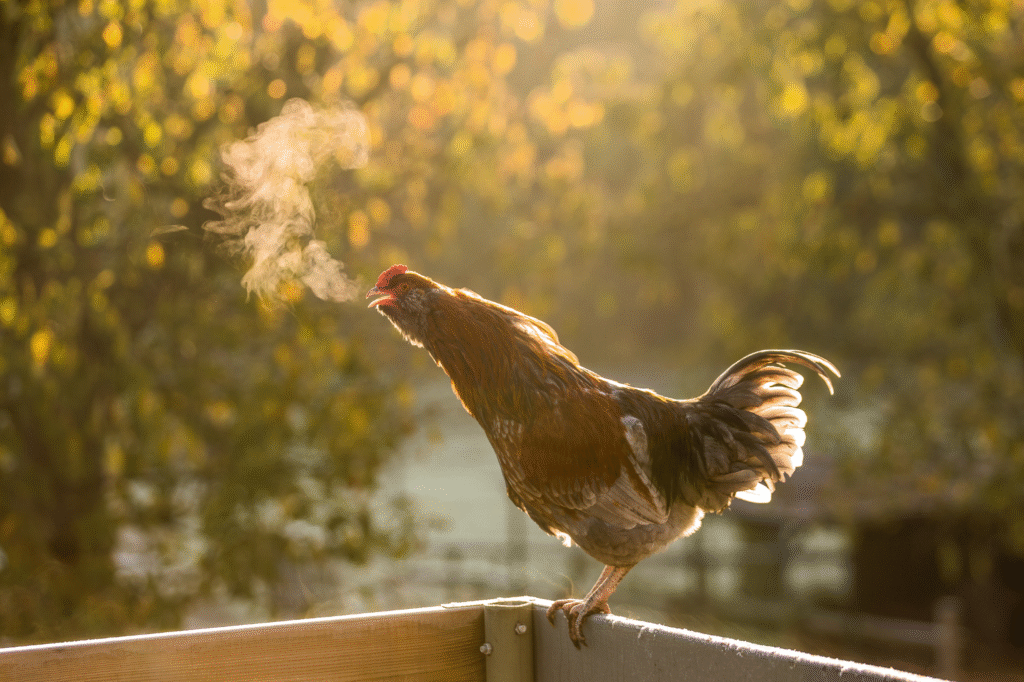
It’s not all showboating. Roosters also use crowing as a cue to the hens. It can mean “wake up,” “food is nearby,” or even “there’s something weird over there.” While it’s often painted as a solo performance, in flock dynamics it acts more like a rally call or reset button. Hens know to pay attention to it. So do other roosters. Even if it seems random to us, within the coop, it has context and structure.
10. Some will crow even without a sunrise or other roosters—just because they can.
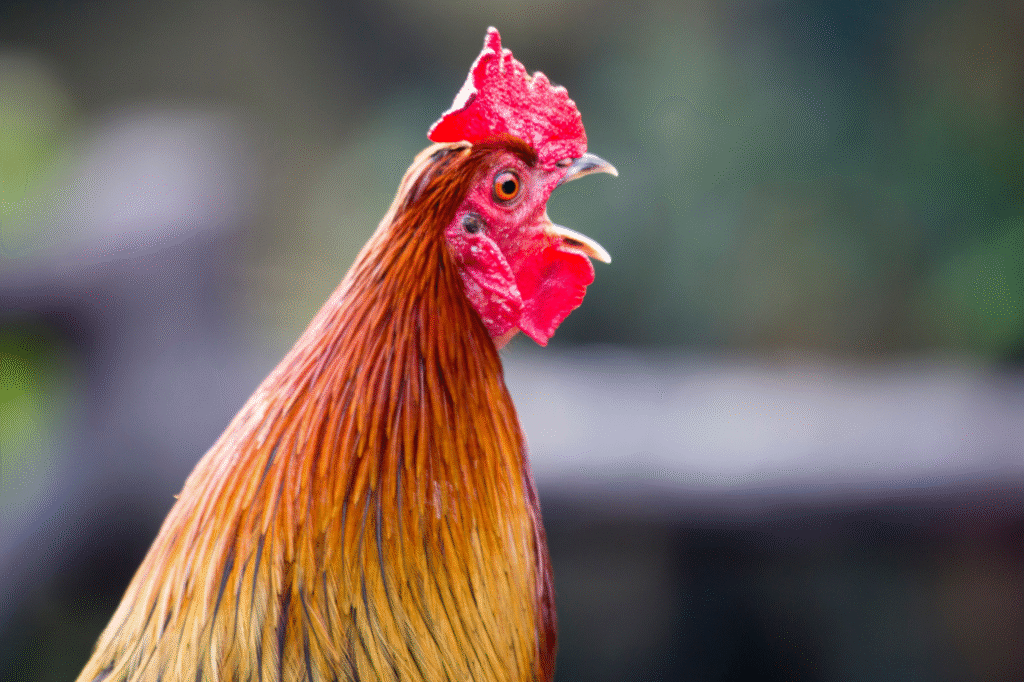
Roosters that live alone often still crow, even though there’s no one to impress or warn. It’s like they’re shouting into the universe just to stay sharp. Their instincts don’t rely on context—they just run on loops. That means your backyard rooster might still belt out his anthem even if he’s the only bird for miles. It doesn’t need to make sense. He’s doing what his DNA told him to do: make noise, claim the day, and never shut up about it.
